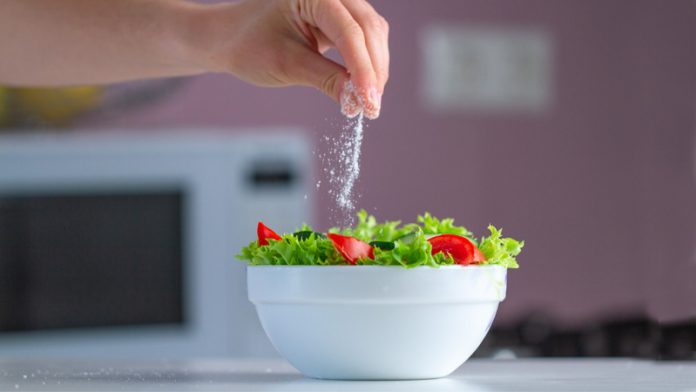
When it comes to cooking, salt is an essential ingredient in any food. It enhances the flavour of anything, be it vegan, vegetarian or non-vegetarian food, even sweets. However, if you add too much salt, it can be overwhelming. Ever been stuck in such a situation? What did you do, Googled it or called your personal chef: your mom? In fact, it is one of the frequently asked questions from cooking experts as well: “What to do if you add too much salt to your food?”
We have all faced situations where the salt lid falls off your main course, leaving it over-salted. In a condition like this, knowing how to neutralize salt in food is an actual life-saving skill. Moreover, an over-salted meal doesn’t mean that your food is wasted. On the other hand, there are various techniques and cooking hacks on how to make food less salty.
How To Make Food Less Salty?

Always use moderation when adding salt to a meal because it can be problematic to reduce it once it’s in the food. There are several techniques to prevent too much salt in food. However, they are not infallible but can certainly save you from a bad day to an extent. Let’s give them a quick look at what are they!
- Generally, table salt, sea salt, and kosher salt have different salinity levels. Moreover, table salt is more refined and difficult to judge how much you need. So, I recommend using kosher salt.
- Some recipes have high-sodium ingredients such as soy sauce, olives, pickles, and salted cheese. These ingredients result in making food too salty. Therefore, always read the recipe first and add salt as directed.
- Always use a proper measurement spoon to add salt. Don’t use a salt shaker because it’s not a useful measuring tool, and you won’t know how much salt you have added.
Tips On How To Neutralize Salt In Food
It’s a cooking nightmare to know that your food is too salty. However, adding certain ingredients to a recipe can easily fix this problem. These tricks on how to neutralize salt in food work for curry, vegetables, meat as well as soups.
1. Add Dairy
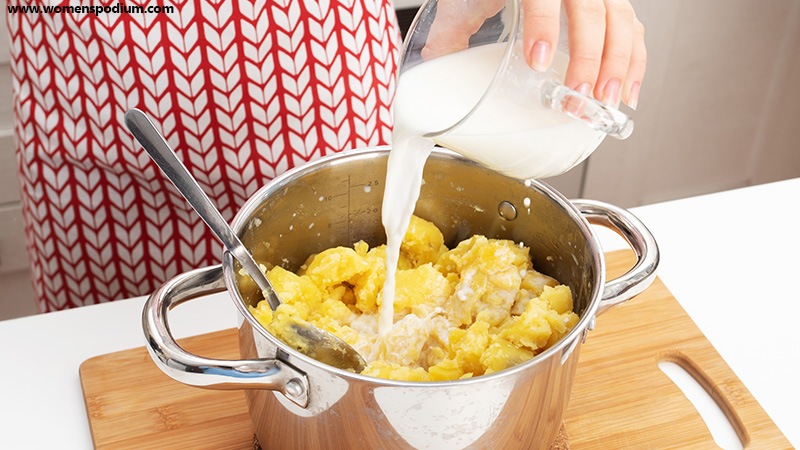
Generally, dairy contains sugar that helps dilute the salt flavour. The best way to neutralize salt is by adding yoghurt, heavy cream, or even sour cream. Furthermore, if you are lactose intolerant, you can add non-dairy milk, such as oat milk or coconut milk, to reduce saltiness. Another no-dairy option is to add avocados; it’s creamy and acts as a taste bud barrier to salty flavour. Furthermore, mild cheese, such as fresh mozzarella, also helps to reduce saltiness. However, be careful not to use cheddar or feta because they are naturally salty.
2. Add Lemon Juice Or Vinegar
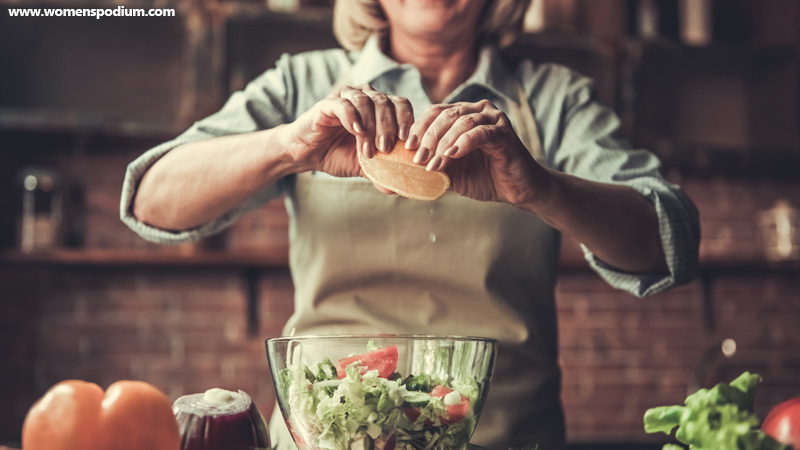
Another way to neutralize excess salt in food is by squeezing lemon or orange juice into your recipe. If lemon is unavailable, you can also use white vinegar, citric acid, and apple cider vinegar. Acid is a crucial flavouring element, similar to salt. People think acidity counterbalances the salt in the dish. However, it hides the saltiness but won’t make it go away. This trick only helps if the food is slightly over-salted.
3. Add Starch
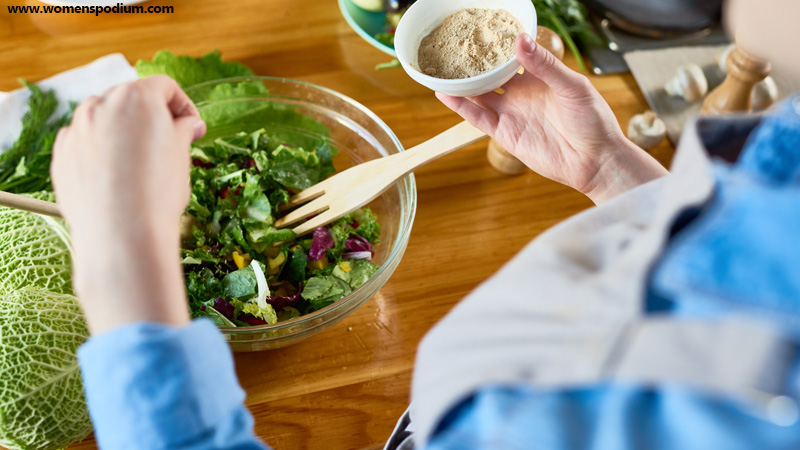
To reduce salt, Cooking Expert suggests adding starch to your food. This technique is more useful for soups and stews. However, we don’t know how much salt the starch absorbs. You can add raw, unpeeled potatoes, cooked white rice, pasta, and quinoa to your dish to reduce the amount of salt. In my opinion, the overuse of starch swaps away the original flavour of the recipe, but yes, in tough times, it reduces saltiness.
4. Add In Some Sugar
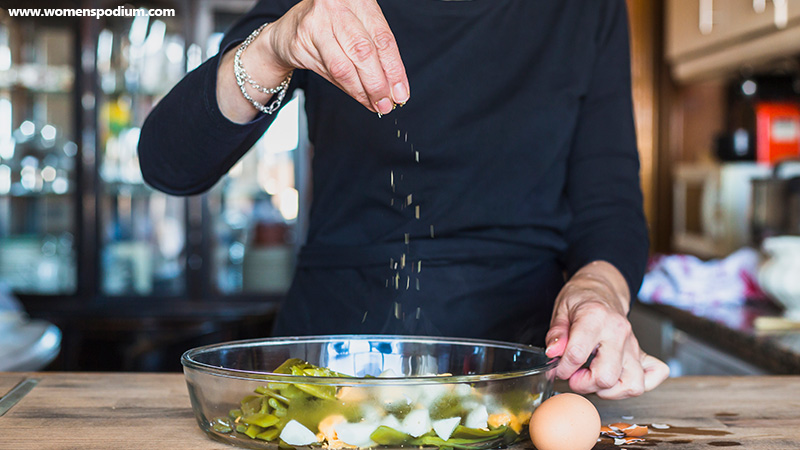
Another way to balance the salt in a meal is to sprinkle some sugar. Sugar not only improves the taste but also makes a meal flavorful and unique when sweet and salty flavours combine. However, mix sugar (brown or white) pinch by pinch, so the food doesn’t become too sweet. Another option could be honey as well for saving your meal.
5. Add More Liquid
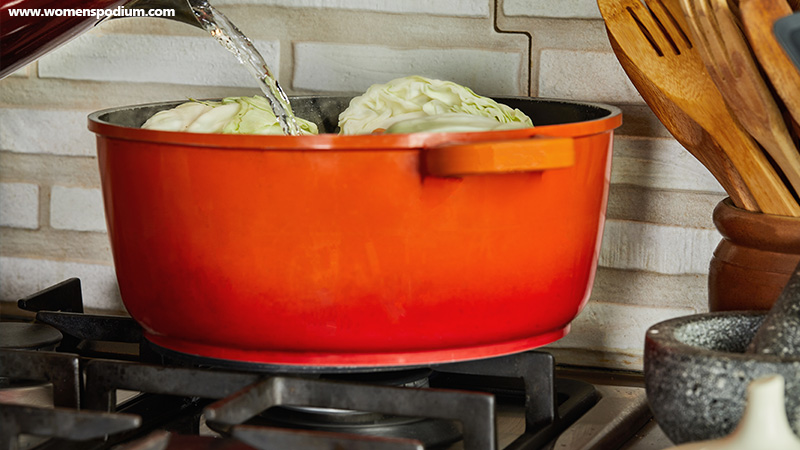
If you are cooking stew or soup and it becomes too salty, adding more water can fix the problem. You can dilute your soup with cold water or unseasoned stock or broth. Moreover, by adding more vegetables, diced tomatoes, ground herbs, and fresh spices, you can boost the flavour. However, be careful not to use more salt, or else it can ruin your meal.
6. Rinse Off The Salt
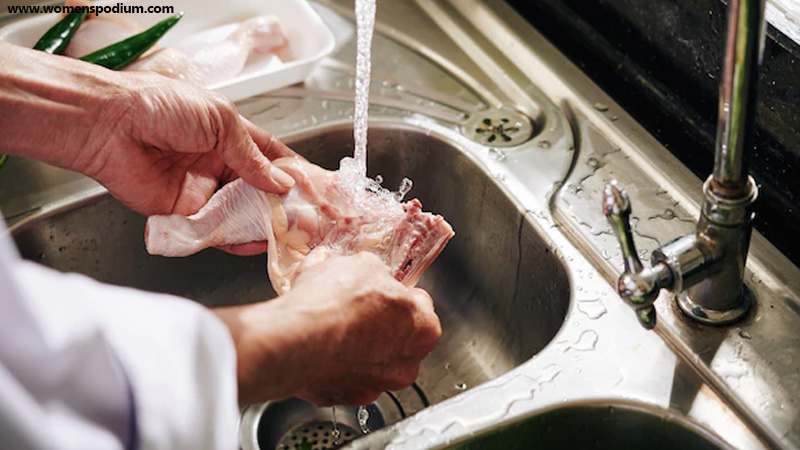
In a situation where you accidentally pour a lot of salt on your vegetables and meat, you can wipe it or dust it off. Pat the surface of the meat with a kitchen towel to minimize the damage. You can even rinse the meat with hot water if the meat is not cooked.
7. Add Vegetables And Egg White
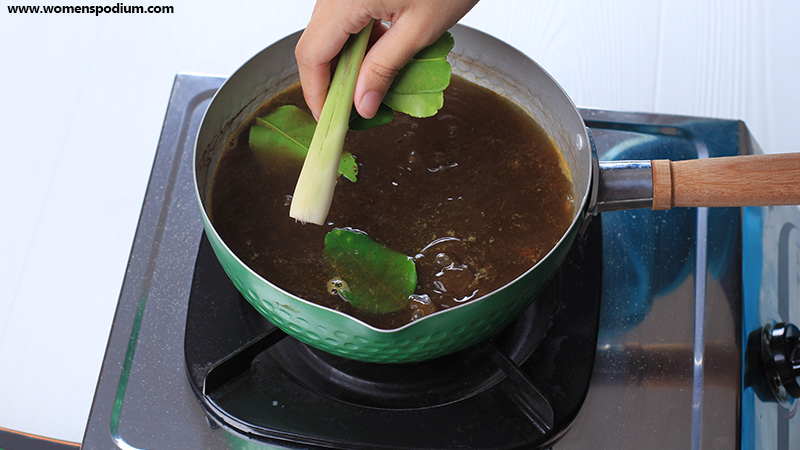
Salty foods can be counterbalanced by egg white. Moreover, they are nutritious, rich in protein, and add extra flavour to your meal. Similarly, vegetables like cauliflower, carrots, and peas also dilute the salt and make your meal healthier. Moreover, adding tofu is also another way to reduce saltiness. These techniques work best for rice, curry, and soups.
Conclusion
Always keep an eye on sodium-enriched ingredients before starting any recipe, and adjust your salt accordingly. Moreover, use a proper measuring spoon to add salt to any food. However, accidents always happen, and if you accidentally add too much salt, these amazing tips and approaches on how to make food less salty will help you save your favourite meal. So next time when you are stuck on what to do if you added too much salt, just try these tricks and tips, which are quite a life saviour.
Also Read: Find out what are the best cooking tips you can opt for to make your cooking easier and tastier.





